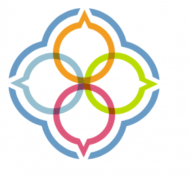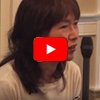Numbering Your Days and Your Finances
Blog / Produced by The High Calling
So teach us to number our days, that we may gain a heart of wisdom.
(Psalm 90:12, NKJV)
Numbering my days is an abiding preoccupation with me, now that I am 67. And the larger that number grows, the more I am conscious of the need to apply my heart to wisdom. Or as the King James Version says it, “to get a heart of wisdom.”
Actuarial charts show the average lifespan of various populations based on their current age. For example, according to numbers supplied by the Social Security Administration, as a woman, I should expect to live another 17 years and nine months. This number can be further refined by factoring in such categories as sex, economic bracket, smoking history, and occupation. One of the most important factors is genetics—how long your own parents lived. Mine lived into their eighties. If I follow their pattern, I should probably overshoot my predicted number.
So should I count on another twenty years? Do I want another twenty years? Not particularly, considering that my mother lived the last decade of her life in the throes of Parkinson’s and Alzheimer’s diseases. Those years were a trial to our family and a nightmare for her.
Moreover, my own bodily afflictions, minor though they are compared to hers, on some days make me eager to shuffle off this mortal coil.
Actuarial charts supposedly help with numbering our days as Psalm 90 encourages us to do. But when I apply my heart to wisdom, I confront other truths. First of all, actuarial charts deal only with averages, not individuals. I might die sitting here at my computer at any moment. For none of us really knows the full number of our days. We can only count them day by day, one at a time. Pondering one’s end may be wisdom; trying to predict is not. At best, such an attempt is pointless. At worst, it leads to fear or disappointment.
So what is the point of numbering my days? How does it get me a heart of wisdom? Psalm 90 (vs. 10) also puts the average lifespan at seventy—which would mean three more years for me. “Or by reason of strength, four score.” That would yield another thirteen.
I try that on to see how it feels. How would I live if I knew I had three more years? Would I blow my shrinking retirement nest egg in three years on big travel plans? Would I pay for my graduating granddaughter’s first year in college? Or would I buy my husband the Jaguar he’s always wanted?
Would I live differently if I had thirteen more years? I’d probably just choose a new fence for my chicken yard and dole out the rest in cost-of-living increases . . .
Linking longevity to my financial resources isn’t simple materialism. If one‘s heart lies where one’s treasure is, following the money can show me what I truly value. And knowing where my heart and treasure is—that can be wisdom.





